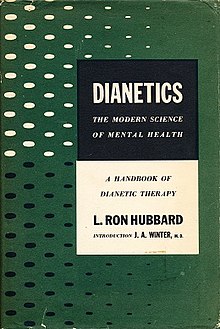Top Guidelines Of Dianetics
Top Guidelines Of Dianetics
Blog Article
The Main Principles Of Dianetics
Table of ContentsThe 7-Minute Rule for DianeticsThe Single Strategy To Use For DianeticsThe Ultimate Guide To DianeticsRumored Buzz on Dianetics
I could not ever before not wish to obtain anything that comes to mind for you- if it was otherwise, I would not be sitting here with you, doing this. I not only could never have an issue, or not wish to listen to something that enters your mind for you, but I'm completely excited to understand every idea, every thought, every picture or feeling that arises or materializes for you- do not ever before assume or else, and if somehow you do, please simply allow me understand! Sometimes, you may have a thought, and image, idea or event turn up that does not appear to answer the question, or connect to it, however however, constantly do tell me about it, and as we proceed, the importance will emerge for you.This is inherent in the basis of processing, and the subject of this conversation: the fundamental roles of the therapist and the client: The basic function of the counselor is, contrary to "standard training", not to regulate, which indicates to implement and/or inhibit, but to instead function from the basis of EMPOWERING THE CLIENT.

Getting My Dianetics To Work
John Mcmasters expressed this standard fact incredibly well in one of his talks on Power processing, wherein he discusses exactly how he was asked what this "special flair" was that he had for giving such great sessions; he needed to consider that for a minute, and found that it was what he had not been doing, in addition to what he was doing: he wasn't assessing, judging, computer, or in fact, producing any ideas, not to mention verbal expressions, after giving the command and while waiting on the computer to complete their solution to their fulfillment; he was, simply and only, being existing with the computer, and totally interested.
The role of the therapist, demonstrated; that was his "unique flair". I have actually had my own experience which showed me this well, really early on in the game. In 1982, having actually recently finished my training and internship on New Period Dianetics, I was running this on a COMPUTER, and there was a factor in the session where (being a bit damp behind the ears not yet having lots of this hyperlink hours under my belt as a specialist auditor) the computer seemed to be "taking too lengthy" to share anything vocally after I gave him a command.
This key ended up being the most valuable payment that John ever before made to the subject of therapy or auditing (Dianetics). In my simple viewpoint, it is the best payment that any individual has ever made to these subjectsthe application is entirely non-judgemental, non-evaluative, and empty of any kind of pointer, suggestions or opinion.no preconditioned agenda for individuals, or 'levels' that they have to do
In Scientology we prided ourselves on not reviewing for individuals. All that really meant was that the auditor did not VERBALLY review for the Computer in session.
The Definitive Guide for Dianetics

Anyone that had ever seen John audit could not assist however see a special quality in his auditing."The client's standard role is to be there with the function of moving in the direction of their spiritual objectives, and to openly and totally express and experience whatever manifests for them in addressing the inquiries and implementing the instructions in the processing.
This is something to procedure as required. Also, individuals frequently have prior experience and/or indoctrination in auditing/processing which, in some ways, and to some degrees, really misleads them into perspectives, ideas and behavior patterns that protect against the complete understanding of these roles, and so they will certainly have a tendency to hinder the expressing of what comes to mind, as in the examples provided above - Dianetics. * The initial, and maybe primary instances of mis-indoctrination resulting in much less than completely smooth and reliable sessions, can be found in YOURURL.com certain elements of the training regimens, or "TR's":"TR's" are typically a person's initial, you can try these out or at the very least early, experience in Scientology, and while I will certainly go on to discuss what I view as the imperfections in concept and method, nonetheless, have a tendency to be significantly healing, done as they are offered (Hubbard urges that "TR's are not refining, they are training", however factually, they are both processing AND training)
Alan Walter made comparable monitorings, and improved these with his "Presence Processes". There is no "flunking", and no denial of the truth of this being processing. The emphasis, as it needs to be, is on experiencing the other person's presence. All the manifestations which obtain a "flunk" in doing "TR-0" are merely the being's efforts to resist the various other person's presence, and instead of being pestered and badgered with "Flunk", which imposes "failing!" on the being, one just needs to be motivated to "stick their feet in the water a little deeper", to increasingly refurbish their ability and determination to totally share and experience "being here", or "presence", with others.
Dianetics for Beginners

Report this page